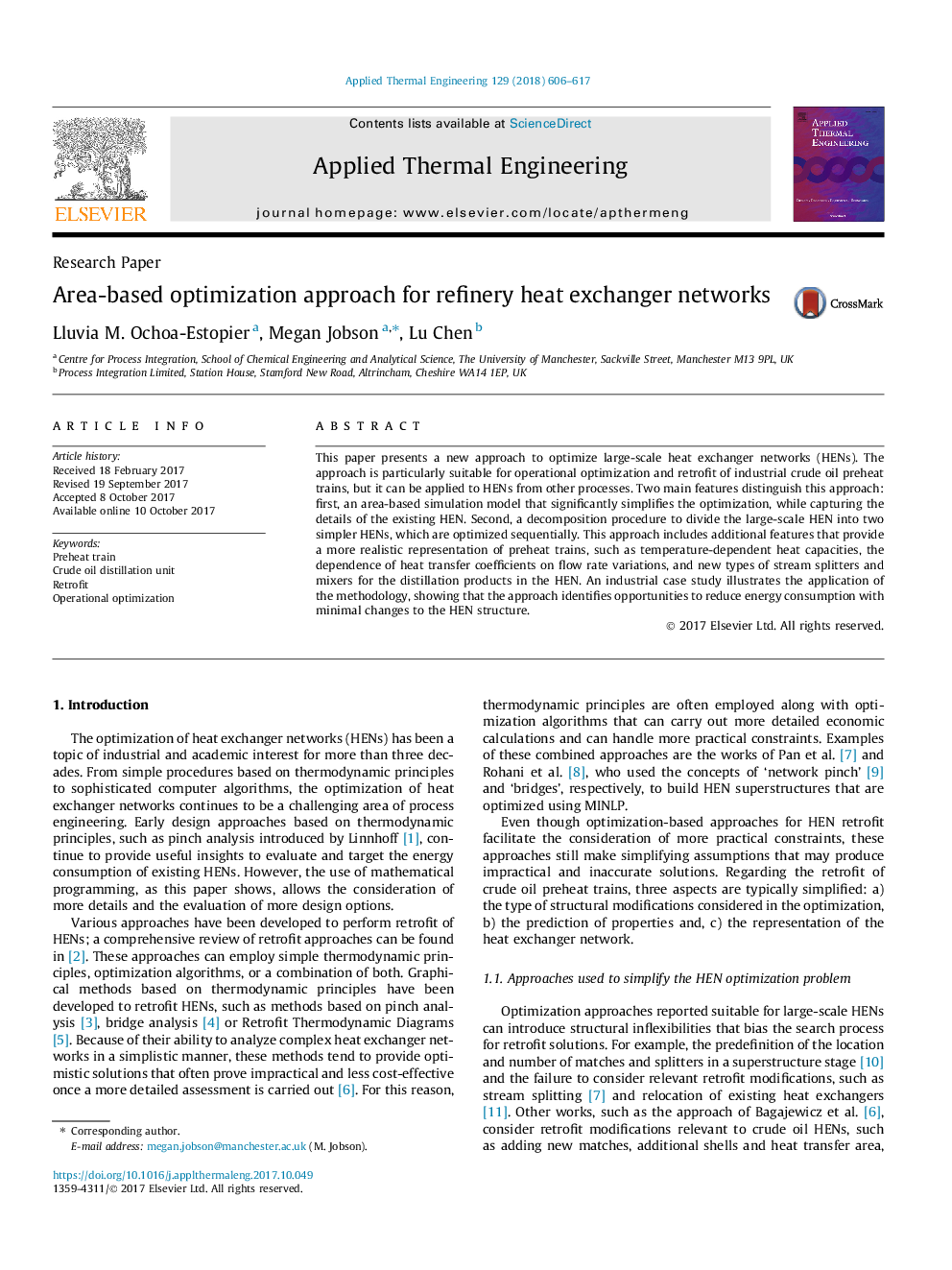| Article ID | Journal | Published Year | Pages | File Type |
|---|---|---|---|---|
| 4990367 | Applied Thermal Engineering | 2018 | 12 Pages |
Abstract
This paper presents a new approach to optimize large-scale heat exchanger networks (HENs). The approach is particularly suitable for operational optimization and retrofit of industrial crude oil preheat trains, but it can be applied to HENs from other processes. Two main features distinguish this approach: first, an area-based simulation model that significantly simplifies the optimization, while capturing the details of the existing HEN. Second, a decomposition procedure to divide the large-scale HEN into two simpler HENs, which are optimized sequentially. This approach includes additional features that provide a more realistic representation of preheat trains, such as temperature-dependent heat capacities, the dependence of heat transfer coefficients on flow rate variations, and new types of stream splitters and mixers for the distillation products in the HEN. An industrial case study illustrates the application of the methodology, showing that the approach identifies opportunities to reduce energy consumption with minimal changes to the HEN structure.
Related Topics
Physical Sciences and Engineering
Chemical Engineering
Fluid Flow and Transfer Processes
Authors
Lluvia M. Ochoa-Estopier, Megan Jobson, Lu Chen,
